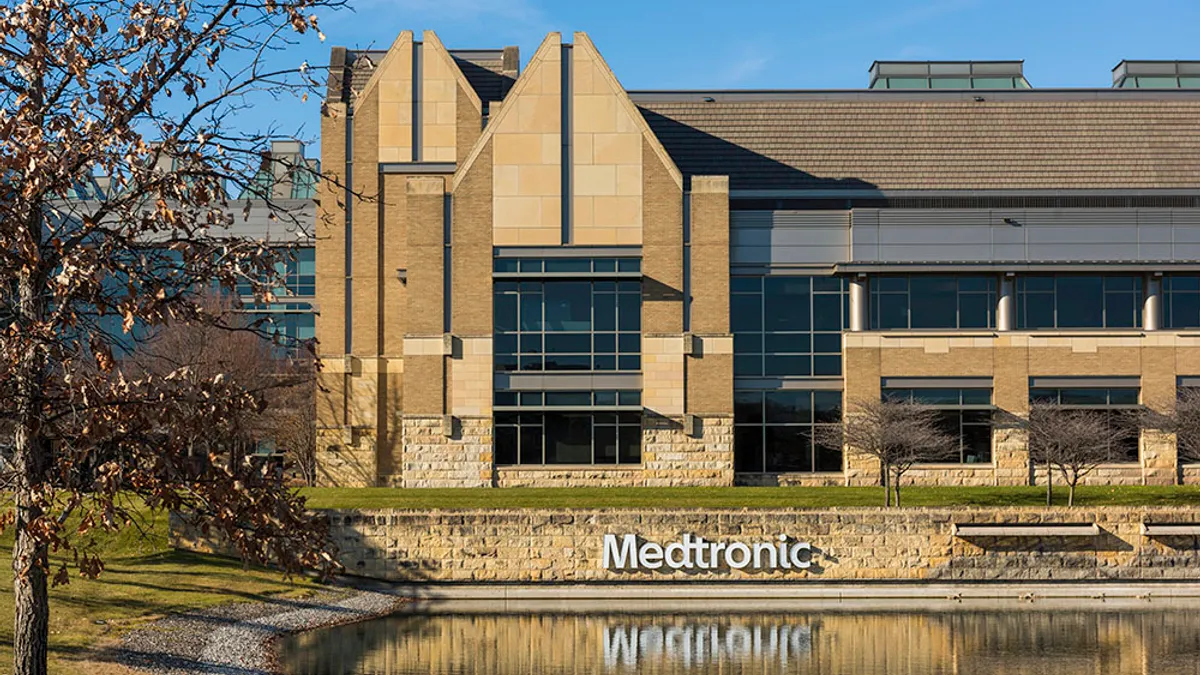Medtronic CEO Geoff Martha told investors Tuesday that the company’s ablation business did not grow as expected last quarter due to supply constraints for its PulseSelect pulsed field ablation (PFA) system, one of the new medical devices reshaping the electrophysiology space.
Martha did not provide details on the disruption during the call. When questioned on the issue, the CEO said the supplier is back on track and has expanded manufacturing capacity, allowing Medtronic to increase availability and activate new accounts.
In August, Martha said on an earnings call that the PulseSelect system would accelerate the growth rate for the ablation business, including strong acceleration in the company’s fiscal year 2025 second quarter.
Medtronic expects strong double-digit growth in its fiscal third quarter now that the disruption has been resolved and the supplier has increased capacity, according to Martha.
The supply disruption came in the same quarter that Boston Scientific saw strong demand for its rival PFA device, Farapulse. Boston Scientific said in October that Farapulse drove a 177% sales growth for its electrophysiology business last quarter compared with the year-ago period.
The companies’ PFA devices introduced new technology into the electrophysiology space, and they are now racing to capture share in a rapidly expanding market. PFA uses nonthermal energy to treat atrial fibrillation, an irregular heartbeat that increases the risk of stroke. The treatment has started to replace the traditional methods of cryoablation and radiofrequency ablation (RFA).
PFA has been one of the hottest spaces of the year, attracting top medtech companies and spurring competitors to push to differentiate their technology.
Martha did not give specific figures on PFA sales or procedures on the call. However, the CEO said Medtronic nearly doubled the number of physicians using PulseSelect and more than doubled the number of patients treated with the device.
Last month, Medtronic received Food and Drug Administration approval for its second PFA device, called Affera. The device combines a cardiac mapping system with an ablation catheter that can switch between either PFA or RFA.
Martha said the company is ramping up the launch of Affera after already entering some of the top U.S. health centers by volume. The launch will “accelerate over the coming weeks and quarters to meet this significant demand, and we continue to rapidly hire mapping specialists in advance of entering new centers, giving us confidence in our ability to accelerate account activations,” the CEO said.
Medtronic is also looking to take share in another advancing medtech market: soft tissue surgical robotics. Intuitive Surgical has dominated the space for decades as small companies and larger firms like Johnson & Johnson and Medtronic try to catch up.
Martha said the company is preparing to submit a filing with the FDA in early 2025 for urology procedures. The company is also enrolling patients in U.S. indication studies for hernia and gynecology.
Martha on Trump
Medical device companies reporting later in earnings season have received questions on how President-elect Donald Trump’s second administration could affect the industry. Martha was hesitant to get into specifics when questioned on the call, saying that it’s still early to speculate on healthcare policies or economic decisions like tariffs.
“We're running different scenarios here, obviously, preparing for different scenarios,” Martha said. “But I don't want to get into that speculation.”
Martha added that the company’s exposure to importing products from China made up less than 1% of its revenue. Trump brought up potential China tariffs during his campaign.











